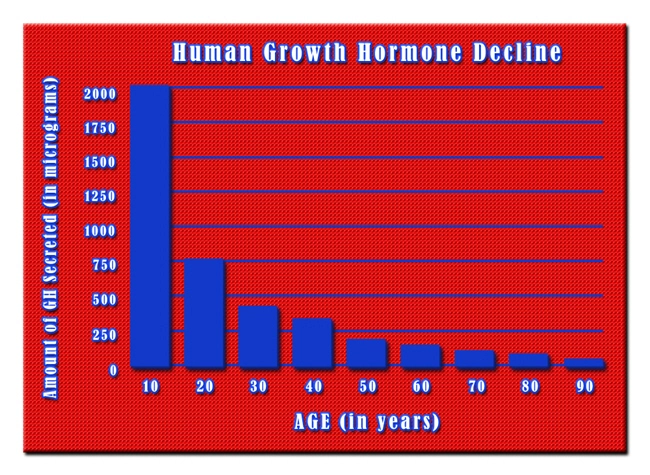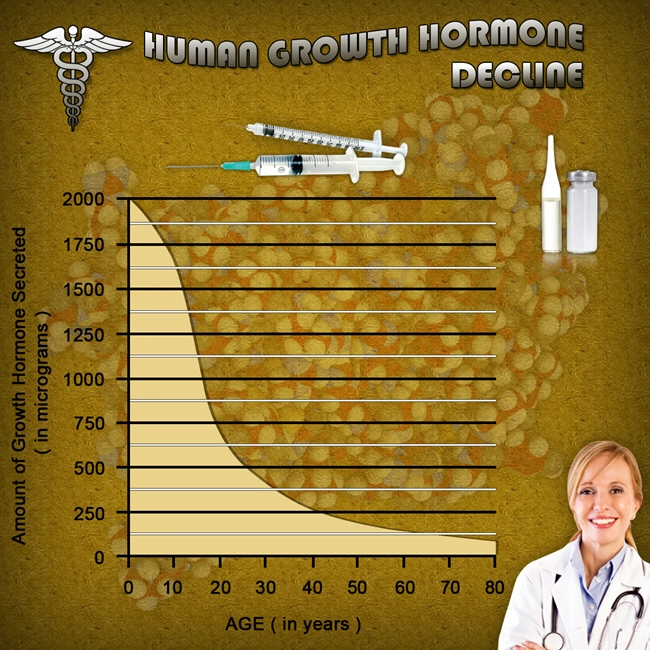
Video Link: https://vimeo.com/288012567
Video Download: Click Here To Download Video
Video Stream: Click Here To Stream Video
Video Link: https://vimeo.com/288013015
Video Download: Click Here To Download Video
Video Stream: Click Here To Stream Video
Confused about organic foods?
Are organic foods worth the extra costs?
And are organic foods always healthier?
Here are the facts. Both pro and cons. Keep reading and make an informed decision
Human Growth Hormone (HGH) Replacement Therapy is designed for one thing: get you back into super-health. HGH therapy works both externally and internally to skyrocket your energy, make the pounds and fat disappear, and deliver many more benefits. But what you eat plays a huge role in the effectiveness of any type of treatment, and HGH treatment is no exception. Nutrition is so crucial to good health, and that includes understanding organic foods.
You’ve heard the clamor from the food “experts” about why you should or should not buy organic foods. As with so many food issues, there is no consensus. “Organic foods are more expensive, but they’re worth it, ” says one nutritionist. “No, they’re not worth the added expense,” says another opinionated “foodie.”
So what to do? Who is right? Who should you listen to? You do, of course, want to do the right thing and maintain your health and the health of your family by making smart nutritional decisions. So let’s take a look at this timely, essential topic and shed some light on the issue.
What are Organic Foods?
Before we go any further, let’s answer the question of “what are organic foods?” Organic refers to meats, dairy products, vegetables, and fruits that are not 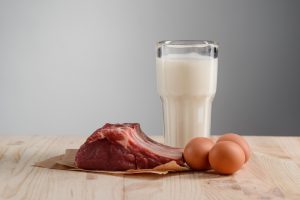 refined, processed, filled with growth hormones and steroids, irradiated, and are grown naturally, without tons of chemical fertilizers, antibiotics and pesticides. Also, organic foods are loaded with a heavy concentration of flavonoids, polyphenols, vitamins, and minerals.
refined, processed, filled with growth hormones and steroids, irradiated, and are grown naturally, without tons of chemical fertilizers, antibiotics and pesticides. Also, organic foods are loaded with a heavy concentration of flavonoids, polyphenols, vitamins, and minerals.
Another characteristic of organic foods is the way they are grown. Organic growing relies on manure to feed the crops instead of artificial fertilizer, and organic farmers practice a technique known as crop rotation. Crop rotation means that crops are rotated in a precise sequence.
An example would be to grow several different crops in the same area but in different seasons or different years. This allows plants to grow easier, with fewer growing problems. As a bonus, crop rotation is environmentally-friendly, since rotating plants reduce soil erosion and depletion, boost soil fertility by providing it with nutrients, cut down on weeds and pests, and reduce sewer sludge. Crop rotation is a fundamental component of organic farming.
Conventional Modern Farming Does Things Differently
In contrast, large agricultural farms (known as Corporate Farms or Intensive Farming) are primarily concerned with output. Consequently, they focus on high yields per input and output of their farm area and make extensive use of fertilizers, pesticides, heavy machinery, Genetically Modified Foods (GMO’s), and cramming scores of numbers of animals into small, cramped spaces.
Here’s another problem with large farming operations: they don’t grow produce by utilizing crop rotation. If the same crop is planted in the same space, 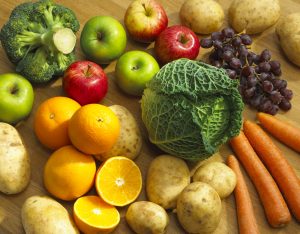 year after year, the nutrient content of the soil is lowered, at times drastically. The result? More profits for the big agricultural companies (Big Agra) and less nutrition in our food.
year after year, the nutrient content of the soil is lowered, at times drastically. The result? More profits for the big agricultural companies (Big Agra) and less nutrition in our food.
Don’t believe it? Check out these statistics from the U.S. Department of Agriculture’s nutritional value for fruits and vegetables today compared to 1975:
- Apples: Vitamin A is down 41%
- Sweet Peppers: Vitamin C is down 31%
- Watercress: Iron is down 88%
- Broccoli: Calcium and Vitamin A are down 50%
- Collard Greens: Vitamin A is down 45%; potassium is down 60%, and magnesium is down 85%
- Cauliflower: Vitamin C is down 45%; Vitamin B1 is down 48%, and vitamin B2 is down 47%
 Here’s a way to explain the impact of these numbers: today you would have to devour ten servings of spinach to get the same amount of minerals you would have gained from one measly serving just fifty years ago!
Here’s a way to explain the impact of these numbers: today you would have to devour ten servings of spinach to get the same amount of minerals you would have gained from one measly serving just fifty years ago!
More examples: largesse potatoes contain only 4% of the antioxidants of ancient purple potatoes. Onions have only 20% of the nutrition of past scallions; sweet white corn has just 2% of the antioxidants of red, blue, and black corn that was available to us for centuries until Big Agra began employing intensive farming techniques.
So now you can see the need to at least consider switching much of your food to organic. But is it really that simple? Is organic always the better choice?
To help you answer that question, here are the pros and cons of both sides of the debate.
The Pros of Choosing Organic Foods
- Better nutrition. Look again at the numbers above that measure the declining nutritional value of much of our food. However, these figures do not refer to organic crops. Organic fruits and vegetables are jammed-packed with more antioxidants, vitamins, and minerals than mass-produced non-organic crops; some estimates claim that the difference between the two is as high as 40% more antioxidants in organics. This can go a long way to maintain your energy levels, good health and ward off dangerous diseases such as stroke, cancer, and heart attack. Finally, cows raised organically produce milk with an antioxidant content more than 90% greater than conventional farms.
- Organic foods taste better. Face facts. We eat more of what tastes good. The better the taste, the more you will want to eat the nutritious foods that keep you healthy. As a bonus, once you make organic foods the central part of your diet, your taste buds will change and lead you toward eating healthy and away from gobbling down junk food.
- Safety. An unpleasant truth: chemicals can be nasty...very nasty, and hazardous to our health. Some of these toxic chemicals in pesticides have been directly
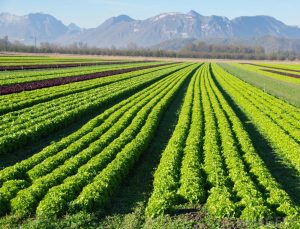 linked to a broad range of health issues, some quite serious: cancer, leukemia, non-Hodgkin's lymphoma, Parkinson’s disease, and several endocrine system problems. Organic farming does not use a list of synthetic, potentially dangerous chemicals that you need a degree in chemistry to pronounce. And it’s not just fruits and vegetables. Cows, pigs, chickens, and turkeys raised on organic farms are not pumped full of antibiotics, and the result is meat and dairy that is safer to eat. Organic meat certification by the U.S. Department of Agriculture (USDA) has specific standards that ensure that animals are fed cleanly and not irradiated or genetically engineered. Finally, there is no hydrogenated fat in organic produce. Zero...nada...zippo. The adverse health consequences of this Frankenstein-like creation are well-documented.
linked to a broad range of health issues, some quite serious: cancer, leukemia, non-Hodgkin's lymphoma, Parkinson’s disease, and several endocrine system problems. Organic farming does not use a list of synthetic, potentially dangerous chemicals that you need a degree in chemistry to pronounce. And it’s not just fruits and vegetables. Cows, pigs, chickens, and turkeys raised on organic farms are not pumped full of antibiotics, and the result is meat and dairy that is safer to eat. Organic meat certification by the U.S. Department of Agriculture (USDA) has specific standards that ensure that animals are fed cleanly and not irradiated or genetically engineered. Finally, there is no hydrogenated fat in organic produce. Zero...nada...zippo. The adverse health consequences of this Frankenstein-like creation are well-documented. - Environmentally-friendly. No question about it: our environment needs all the help it can get. The practices of organic farming (crop rotation, manure instead of fertilizer, no pesticides) promote a healthy, clean environment. Organic soil is also healthier than the ground on conventional farms.
- Gives a boost to your local economy. Much of the produce sold in your local farmer’s markets is organic and grown locally.
- Lower long-term costs. Are costs less? Did you read that right? Yes, you did. Here’s why. The immediate cost may be somewhat higher. But if you are struck with a severe illness consider the costs of hospitalization...surgery...permanent incapacitation...and spending years if not decades in an assisted care facility. If eating organic can help to prevent that grim outcome it is well worth the extra initial cost.
- Provides protection for babies. The unborn are the most vulnerable segment of our population and are at exceptionally high risk of birth defects and autism from the toxins in non-organic food.
So there you have a few of the arguments for choosing organic. But as with so many issues, there are two sides of the story. Here are a few reasons why you may not want or need to choose organic.
The Cons of Choosing Organic Foods
- Price. Numbers don’t lie. The initial added cost of buying organic products is enough for many people to overcome their long-term health concerns. Conventional foods are cheaper due to their use of pesticides, less manual labor, crowding animals into small spaces, and not rotating crops. Organic farmers must apply manure and perform weeding. These two activities are more labor-intensive than using fertilizer and pesticides. The result is extra costs to cover the organic farmer’s added time and effort. If all of this weren’t bad enough, there is the huge issue of government intervention. A recent study concluded that government-subsidized conventional farms to the tune of $7.5 billion. However, the government's largess did not extend to organic farms. They received the paltry sum of $15 million. Unfair? YOU BET! Sad but true. Who pays the difference for this grotesque misallocation? You guessed it...the consumer. Still another reason that organic is higher-priced is that obtaining the organic seal of approval from the government is neither easy nor cheap. Therefore, farmers are forced to mark up their produce.
- Quick spoilage. In their never-ending quest for profits, large food corporations see preservatives and irradiation as ways to enlarge their bottom line.
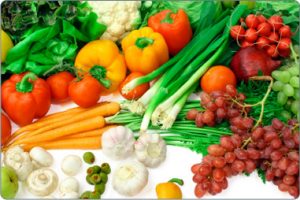 Organic foods, being in their natural state, do not have these unnatural alterations. As a result, they are more nutritious but don’t last as long as conventional foods. This raises their cost and can lead to more foods tossed into the garbage can and more trips to the grocery store.
Organic foods, being in their natural state, do not have these unnatural alterations. As a result, they are more nutritious but don’t last as long as conventional foods. This raises their cost and can lead to more foods tossed into the garbage can and more trips to the grocery store. - Organic foods are harder to find. This is due to the longer time required to farm organic crops. Combine this with fewer organic farms and a smaller number of stores that offer organic produce, and we have a supply problem. A fundamental law of economics is the law of supply and demand. Less supply = more demand = higher costs. This explains the higher price of eating organic.
- There is no scientific consensus about the benefits of organic foods. Some studies have not been able to verify the claims of added nutrition in organic products. They may have some additional benefits, but there are questions as to whether the added cost is worth it.
- The E.coli problem. Due to the lack of pesticides used on organic farms, E. coli is slightly higher in organic produce than conventional, as well as a somewhat more significant risk of contamination.
- Different levels of organic and uncertainty of the organic label. A little-known secret: there are various levels of organic. Some products labeled organic are 95% to 100% organic -- the real deal. Others are 79% to 95% organic, with as much as 30% ingredients non-organic. Then there are the less than 70% organic. Yep. Believe it or not, a food company can stuff their food products with more than 30% non-organic and still call it organic if the product label lists the non-organic ingredients. Worse, there are even organic junk foods such as potato chips, ice cream, lollipops, jelly beans, soda, cheese puffs, and frozen pizza! Also, the USDA is continually putting federally-certified organic producers on probation for falsely selling foods with an organic label that have not been inspected. This is a result of the National Organic Program being responsible for awarding this tag. Sounds great, but this is a program with deep ties to Big Agra, and therefore may be fast and loose with their label granting program. Finally, foods that have been pasteurized and irradiated may fly under the organic radar screen. Buyer beware. Confusing, but things you need to know.
So now what? As you can see, the topic of organic foods is fraught with confusion and contradictions. But don’t despair and throw up your hands in defeat.
Here’s the Good News
You don’t need to buy all of your foods organic! That’s right. Some produce can withstand the modern-day procedures of conventional farming and still retain their nutritional value and remain “clean.” According to the Environmental Working Group, here’s a list of foods that you don’t need to buy organic:
- Sweet potatoes
- Avocados
- Sweet corn
- Pineapple
- Mango
- Frozen Sweet Peas
- Asparagus
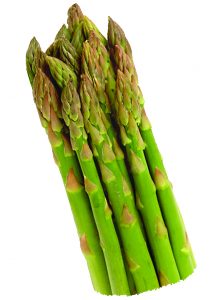
- Kiwi
- Cabbage
- Sweet onions
- Eggplant
- Cantaloupe
- Watermelon
- Grapefruit
- Onions
- Carrots
- Cauliflower
- Mushroom
- Papaya
- Coconut
- Honey
And here are the foods you need to buy organically:
- Strawberries
- Spinach
- Nectarines
- Apples
- Peaches
- Pears
- Cherries
- Grapes
- Celery
- Tomatoes
- Sweet bell peppers
- Potatoes
- Dairy
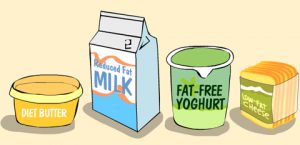
- Blueberries
- Cucumbers
- Lettuce
- Kale
- Green collards
- Meat
- Soy
The Environmental Working Group produced these lists by conducting a series of tests on produce that measured the percentage of produce with detectable pesticides and the average number, maximum number, and the total number of pesticides found on each food item.
Key Points to Remember
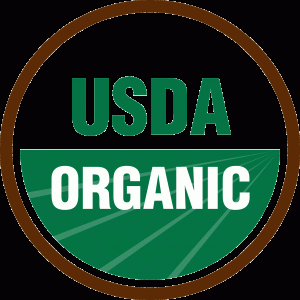 Re-read the lists above, and keep them in mind when you shop. Eating organic doesn’t have to be budget-breaking. You don’t always have to buy organic.
Re-read the lists above, and keep them in mind when you shop. Eating organic doesn’t have to be budget-breaking. You don’t always have to buy organic.
Organic junk foods are still junk foods, regardless of the organic label. If it’s not raw milk, it’s not organic. Make sure the produce was not grown on a conventional farm.
When it comes to meat selection, look for range-free, grass-fed animals that were not fed grains. And drop anything with a GMO label. Genetically Modified Crops are in no way, shape, or form organic crops.
So there you have it; both sides of the story. Farmers' markets and Community Supported Agriculture (CSA’s) are two options to consider when buying organic.
Most producers involved with these outlets are more than happy to discuss their methods of growing and can provide education and advice on organic eating.
The choice is yours. Choose wisely!
Contact us for a FREE, no-obligation discussion concerning growth hormone restoration.
References
Organic Foods Organic 101: What the USDA Organic Label Means
9 Amazing Benefits of Organic Food
4 Science-Backed Health Benefits of Eating Organic
http://time.com/4871915/health-benefits-organic-food/
Contact Us Today For A Free Consultation
Dear Patient,
Once you have completing the above contact form, for security purposes and confirmation, please confirm your information by calling us.
Please call now: 1-800-380-5339.
Welcoming You To Our Clinic, Professor Tom Henderson.

- Obese Patients Have a Higher COVID-19 Mortality Risk Than the General Public [Last Updated On: January 24th, 2025] [Originally Added On: August 21st, 2020]
- The Health and Hormone Balancing Qualities of Broccoli [Last Updated On: August 11th, 2025] [Originally Added On: August 27th, 2020]
- What to eat to boost testosterone [Last Updated On: September 14th, 2025] [Originally Added On: December 14th, 2020]
- Breaking a Weight Loss Plateau: How to Reduce Body Fat When Nothing Seems to be Working [Last Updated On: January 20th, 2025] [Originally Added On: February 16th, 2021]
- The Top 25 Most Nourishing and Sustaining Foods to Add to Your Diet Today for Increased Longevity [Last Updated On: January 16th, 2025] [Originally Added On: February 16th, 2021]
- Fight Inflammation and Osteoporosis with Beets! [Last Updated On: January 14th, 2025] [Originally Added On: February 18th, 2021]
- Break a Weight Loss Plateau with Apple Cider Vinegar [Last Updated On: January 14th, 2025] [Originally Added On: February 20th, 2021]
- An Intriguing Look into How Growth Hormone Production and Fasting are Linked [Last Updated On: January 18th, 2025] [Originally Added On: February 21st, 2021]
- Health Reasons for a Vegan Diet [Last Updated On: October 25th, 2025] [Originally Added On: April 2nd, 2021]
- Leafy Greens are Medicine for Your Gut [Last Updated On: September 27th, 2025] [Originally Added On: April 23rd, 2021]
- All Praise to the Spud -- the Delicious, Health-Giving Potato, That Is [Last Updated On: August 12th, 2025] [Originally Added On: June 1st, 2021]
- 16 Cancer-Causing Foods to Avoid [Last Updated On: May 21st, 2025] [Originally Added On: August 12th, 2021]
- Longevity and Anti-Aging -- The Use of Flax Seed Oil [Last Updated On: May 7th, 2025] [Originally Added On: August 17th, 2021]
- Essential Amino Acids Critical to Health and Hormone Balance [Last Updated On: June 13th, 2025] [Originally Added On: October 6th, 2021]
- Growth Hormone and Calcium [Last Updated On: January 11th, 2025] [Originally Added On: October 16th, 2021]
- Growth Hormone and Coffee [Last Updated On: January 9th, 2025] [Originally Added On: October 19th, 2021]
- The Importance of Protein in Weight Loss and Testosterone Production [Last Updated On: January 19th, 2025] [Originally Added On: October 19th, 2021]
- Testosterone, Growth Hormone, and Sugar. [Last Updated On: January 9th, 2025] [Originally Added On: October 19th, 2021]
- Testosterone, Growth Hormone, and Processed Meat [Last Updated On: January 8th, 2025] [Originally Added On: October 19th, 2021]
- Growth Hormone and Intermittent Fasting [Last Updated On: January 7th, 2025] [Originally Added On: October 19th, 2021]
- Growth Hormone and the Importance of Nutrition [Last Updated On: January 7th, 2025] [Originally Added On: October 20th, 2021]
- Growth Hormone Stops Inflammation! [Last Updated On: January 8th, 2025] [Originally Added On: October 20th, 2021]
- Growth Hormone and Sugar Addiction [Last Updated On: February 1st, 2026] [Originally Added On: October 20th, 2021]
- Growth Hormone and Red Meat [Last Updated On: January 5th, 2025] [Originally Added On: October 20th, 2021]
- Boost Growth Hormone with Sleep [Last Updated On: May 20th, 2025] [Originally Added On: October 20th, 2021]
- A Natural Acid Found in Apples Prevents Muscle Loss AKA Sarcopenia [Last Updated On: January 10th, 2025] [Originally Added On: October 20th, 2021]
- Growth Hormone and Acidosis [Last Updated On: January 5th, 2025] [Originally Added On: October 21st, 2021]
- Growth Hormone Food Choices [Last Updated On: January 29th, 2026] [Originally Added On: October 21st, 2021]
- Growth Hormone and Cholesterol: the Surprising Link [Last Updated On: January 6th, 2025] [Originally Added On: October 22nd, 2021]
- Growth Hormone and Weight Loss [Last Updated On: January 31st, 2026] [Originally Added On: October 22nd, 2021]
- Growth Hormone Reduces Inflammation [Last Updated On: January 4th, 2025] [Originally Added On: October 24th, 2021]
- What You Eat Impacts Both Your Sleep AND Your Growth Hormone Production [Last Updated On: January 10th, 2025] [Originally Added On: October 24th, 2021]
- Growth Hormone Lowers Blood Sugar [Last Updated On: January 6th, 2025] [Originally Added On: October 24th, 2021]
- Testosterone and Magnesium [Last Updated On: May 22nd, 2025] [Originally Added On: April 28th, 2022]
- The Beneficial Functions of Brown Fat vs. White Fat [Last Updated On: May 26th, 2025] [Originally Added On: May 3rd, 2022]
- MOTS-c Peptide for Weight Loss and Muscle Building [Last Updated On: June 11th, 2025] [Originally Added On: November 7th, 2022]
- Looking to lose weight? Add this ingredient to meals [Last Updated On: September 24th, 2025] [Originally Added On: December 7th, 2022]
- The many health benefits of black tea [Last Updated On: September 23rd, 2025] [Originally Added On: December 13th, 2022]
- Raw Food Benefits [Last Updated On: September 20th, 2025] [Originally Added On: January 18th, 2023]
- Brain Foods that Work Together with HGH to Improve Mental Sharpness [Last Updated On: February 14th, 2025] [Originally Added On: March 9th, 2024]

